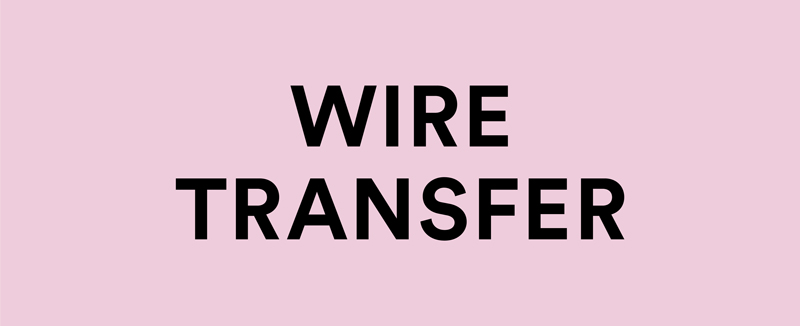Articles with tag:
Emotions
(12 results)
Santu Mofokeng: A Silent Solitude
“A gift is the evidence of an act, a symbolic gesture that is at once free and obligatory,” writes Katia Anguelova, curator of AtWork Dakar 2012. “Considered in terms of a give-and-take relationship, the work of art can therefore be regarded as a gift or a representation of a gift.” This is the central idea of AtWork, the educational format created by lettera27 and Simon Njami. Its key element is a workshop during which participants produce a personalized notebook, which they can choose to donate to lettera27, thus becoming part of AtWork Community. The workshop that has recently taken place in Italy, in partnership with Fondazione Fotografia Modena, was entirely dedicated to the photographic image and was attended, among others, by the young Ivorian aspiring photographer Mohamed Keita. The notebooks produced during the workshop were displayed in an exhibition co-curated by the students at the Fondazione Fotografia Modena’s atelier in Via Giardini. Drawing on Foucault’s idea of heterotopy, Simon Njami chose “heterochrony” as the main theme of the workshop, describing it as “a break with real-time that introduces multiple time-spaces from which it is possible to reconsider...
Thinking for yourself and within yourself
On April 27th upon the invitation by Art Basel for Non-Profit Visual Arts Organizations, we have launched our first crowdfunding campaign on Kickstarter to implement the sixth chapter of our itinerant educational artistic format AtWork. The campaign is aimed to fund AtWork Addis Ababa, consisting of: a 5-day workshop for young Ethiopian art students and creative talents led by international curator Simon Njami and an exhibition of the created artworks at Addis Foto Fest in December 2016. With your support, we can continue to offer AtWork experience to the students for free. Join our crowdfunding campaign on Art Basel Kickstarter and contribute to nourishing a new generation of creative thinkers that can build the future we are all longing for! lettera27 On the occasion of the campaign’s launch we are publishing Simon Njami’s text that poetically describes the vision behind our educational approach. Enjoy the reading and support our campaign here! Thinking for yourself and within yourself We, however, start from the beginning. We are poor, we have unlearned how to play. We have forgotten it, our hands have unlearned how to dabble. (Ernst Bloch) What Ernst...
Asmarina: post colonial heritages
Italian Version Asmarina, a 2015 documentary by Alan Maglio and Medhin Paolos, follows what they call “voices and images of a postcolonial heritage.” This beautiful documentary (with an absolutely riveting soundtrack) tells the story of Milan’s habesha community, integral to the Porta Venezia neighborhood since the mid-twentieth century. Weaving together the experiences and identities of those who have lived in Italy for generations with those of newly arrived refugees, Asmarina traces the complex networks of colonial legacies, transnational migrations, family ties, and diasporic politics. And through these stories, which can only be understood from a spatially extended and transhistorical perspective, it also forces a serious reconsideration of what we mean when we talk about “Italy” and “Italians.” Still from Asmarina (2015). Diasporic photography Asmarina begins with a montage of photographs: a hand gently moving a magnifying glass over photo slides on a light table; an aging, black-and-white photo; a well-worn family album; crisp pages from the 1983 work of photojournalism Stranieri a Milano. Pictures are laid out on a table, ejected from a printer,...
Filmmaker Fred Kuwornu on Blaxploitalian and representation in cinema.
Fred Kuwornu is an Italian-Ghanaian filmmaker and activist best known for his documentaries Inside Buffalo (2010), about the Black American soldiers who participated in the liberation of Italy during World War II, and 18 Ius Soli (2012), about the children of immigrants in Italy and their struggles for legal and social recognition. This summer, he has begun screening his latest film project, Blaxploitalian: One Hundred Years of Blackness in Italian Cinema (supported by a grant from the Lettera27 foundation). A sweeping documentary inspired by Leonardo De Franceschi’s seminal collection L’Africa in Italia as well as Fred’s own experiences in the Italian film industry, Blaxploitalian recounts the century-long yet underappreciated history of people of African descent in Italian cinema. Like Fred’s previous projects, this documentary has an explicit social mission. He is using Blaxploitalian to connect with an international network of activists who are building on the momentum of #OscarsSoWhite and similar conversations in England and France, with the ultimate goal of developing a platform to support advocacy for greater diversity in media. I have known Fred since 2013; we first...
Umberto Eco: How I Wrote my Books
It is snowing when I get to Umberto Eco’s house in Milan. It’s February, and his latest book, Numero Zero, published by Bompiani at the beginning of 2015, shot to the top the best seller list almost instantly. There have been several reviews, and Eco has given more interviews than is his wont, if I remember correctly. So what can I ask him that hasn’t already been asked? I had read the proofs before the book came out, but we weren’t able to find a date to meet before today. I’m excited to meet him. Eco is famous throughout Italy and the world over, perhaps the best-known living Italian author today. Essays, articles, whole books have been written about him, and yet there are many things about him that escape his readers and critics. One thing I want to find out more about is his double role as essayist and fiction writer. Another is the way he works. Then there is the trifling matter of having written a book at the age of 82. No small feat, in anyone’s book. So this is where I start my interview: sitting on his sofa I ask him about Numero Zero. What gave you the idea for this book? I’ve been writing articles criticizing journalism since the 1970s. In the 1990s a fellow...
Compassion: Between Tenderness and Cruelty
There are so many things to say about compassion that one could fill a book or an encyclopedia. A partial list of areas to cover would include: commiseration, piety, love, understanding, sharing, empathy, sympathy, antipathy, intropathy, bliss and clemency. Compassion is what we feel reading about Hector and his wife Andromache, or the dream about the twenty geese that Penelope tells the disguised ‘beggar’ who is really her husband, Odysseus. It is the condition Aristotle refers to in his ‘Poetics’ when he uses the term ‘catharsis’. It is also the virtue embodied by Aeneas as he slings his old father Anchises and his son Ascanius to on his back and carries them out of burning Troy to safety. Or again, when Eros disobeys his mother and falls in love with Psyche. And so on, throughout history, examples of compassion abound, in Romantic literature and then on to the scandal caused by the controversy between Nietzsche and Wagner regarding Schopenhauer. Compassion does not necessarily have the same connotations today as it did in the past. We are not even sure whether the words we use to describe the sentiment correspond to what each of us feels today. The term ‘compassion’ has...
When Freelancing is Female
The debate over the role of women in the labor market has entered the social, academic and political arena through various channels. I can’t say for sure whether society has already entered a post-patriarchal era or not, but it is undeniable that women play an essential role in both biological and economic developments today. I would like to frame the issue by taking into account the fact that precarious short-term contracts have been one of the strongest markers of gender – and gender discrimination - in the past decades. Since I argue that the concept of gender is socially and historically constructed, it is clear that the condition of being hired on a short-term contract is responsible for much of what we see as the condition of women in the workplace. This does not altogether rule out the transformative potential of “becoming” a woman indicated by Gilles Deleuze. Doing so would imply an inclination towards deconstruction, which would anyway save women from the mechanisms of subjugation that are implicit in a short-term, precarious identity. Reputation and contemporary protheses A great deal of feminist writing - in particular, on gender differences – has tended to...
Why Africa Why
Why Africa Why. And who am I to say? Why Africa Why? All I remember is a river I did not sail up, in search of who, Kurz, Marlon, who? And I do remember a few Masai, one in particular, riding with me a road in Kenya, and a lake with a European name it’s time to shed, perhaps, and a desert and dunes and things that are wider even than Africa, amazing as it sounds. I don’t remember the Namibian desert and its dry mysteries of a distant hut without running water, because I’ve never visited it. And a lively Ivory Coast that runs only in my imagination along with a singing Senegal and a Congo I’ve read about in some brilliant short stories and Zan-zi-baaar and Mad-ag-as-caaar, being the most important scar, like the one on the face of African princes, from where? I don’t remember now. Malawi better than Malindi. Two people having an argument and you know the one who laughs and walks away first is the one who won it. Yes, booming voice and smile, Africa. People lining the side roads of the little Africa I’ve seen, that dances away in my mind with the Africa I’ve read and heard and seen only on a screen and imagined and dreamt. For I know very little about this Africa, what do I...
Why Africa? Changing the Narrative of the World
Why Africa? For many years lettera27 has been dedicated to exploring various issues and debates around the African continent and with this new editorial column we would like to open a dialogue with cultural protagonists who deal with Africa. This will be the place to express opinions, tell their stories, stimulate the critical debate and suggest ideas to subvert multiple stereotypes surrounding this immense continent. With this new column we would like to open new perspectives: geographical, cultural, sociological. We would like the column to be a stimulus to learn, re-think, be inspired and share knowledge. For the opening piece we asked our partners, intellectuals and like-minded cultural protagonists from all over the world to answer one key question, which also happens to be the name of the column: "Why Africa?". We left the question deliberately open, inviting each of the contributors to give us their perspective on this topic from their own context. This first piece is a collection of some of the answers we received, which aims to open the conversation, pose more questions and hopefully find new answers. Elena Korzhenevich, lettera27 Here the column's introduction...
The mother of all dances
When I discovered the question, I felt tempted to parody this American actor in this ad for some coffee and to answer: what else? I am the son of Lydia and Simon, two bassa heroes. I am the result of those two beings from a people who fought forcefully for their freedom; two children of Africa. So, what else? What else than that land of shadows and ghosts waiting to be revealed? What else than those millions of stories waiting to be told? Those stories I would read for my grandfather without really understanding, but captured by the mystery of books that could contain a whole world within their pages. Wars, marvels, people, love, hatred, all translated in the subtle magic of words. Conrad did not know to which extend he was right when he called this continent the heart of darkness. He did not know what darkness was in reality and found the right words out of a misunderstanding. What do we say when we say Europe or Africa? People are always convinced to say something when they say “Africa”, which I admire, because I personally still don’t know what is Africa. I say Africa knowing that if we were looking for a definition that would perfectly define the complexity of the...
Zingonia: Utopia and Reality
In 1964, Renzo Zingone decided to found and build a new town on farmland in the province of Bergamo. Zingone was a wealthy businessman from Rome who owned the Banca Generale di Credito and had made his fortune mining gold and copper in Venezuela. He had already built the Zingone quarter in Trezzano sul Naviglio just outside Milan. In both cases the choice of name – Zingonia – had been dictated by Zingone senior who, in a letter dated 1930, had advised his two sons, Renzo and Corrado, to “always strive to valorize the family name”. Zingonia, Missile Both the Zingone quarter and the new town Zingonia, were designed by the architect Franco Negri, born in 1923, who graduated from the Milan Polytechnic in 1956. The foundation of both projects was the prefabricated industrial depots produced by the family company, Zingone Structures, which in Renzo Zingone’s mind were to become the productive heart of the new settlement. There was an essential difference between the two designs, however. The Zingone quarter was to assimilate the already existing industrial and productive businesses in the Milanese hinterland. In the new town, Zingonia, by contrast, the industrial warehouses...
Peter Handke: The Essay Writer
In recent years, critical attention towards the Austrian novelist, playwright and political activist of Slovenian origin, Peter Handke, has focused more on his activism than on his books. In particular, he sparked controversy when he spoke out in support of the Serbian regime, during the sanguinary civil war in former Yugoslavia, and of its leader Slobodan Milošević, both during his trial in the Hague and at his funeral. Many of his most important works are out of print and there are fewer and fewer reprints scheduled, though there may be some change in the air. And yet, his work continues to be translated. Fortunately, this shows that Peter Handke still enjoys a worldwide readership despite the polemics. Donata Wenders, Peter Handke, Chaville 2009 After receiving such prestigious awards as the Kafka prize in 2008, and the Ibsen prize in 2014, Handke’s return to the public eye inevitably stirred up the controversy. Perhaps it is easier to attack Handke for his views than to analyze and comprehend the full range of motivations the writer has given for his opinions. Admittedly, his unquestioning espousal of Milošević’s doctrines is hard to digest, in particular by today’s...









 Since 2011
Since 2011 

